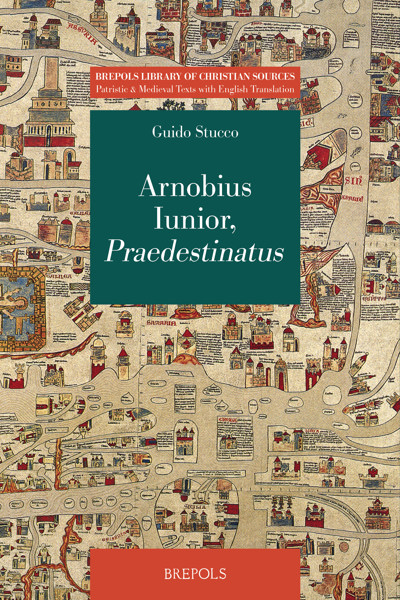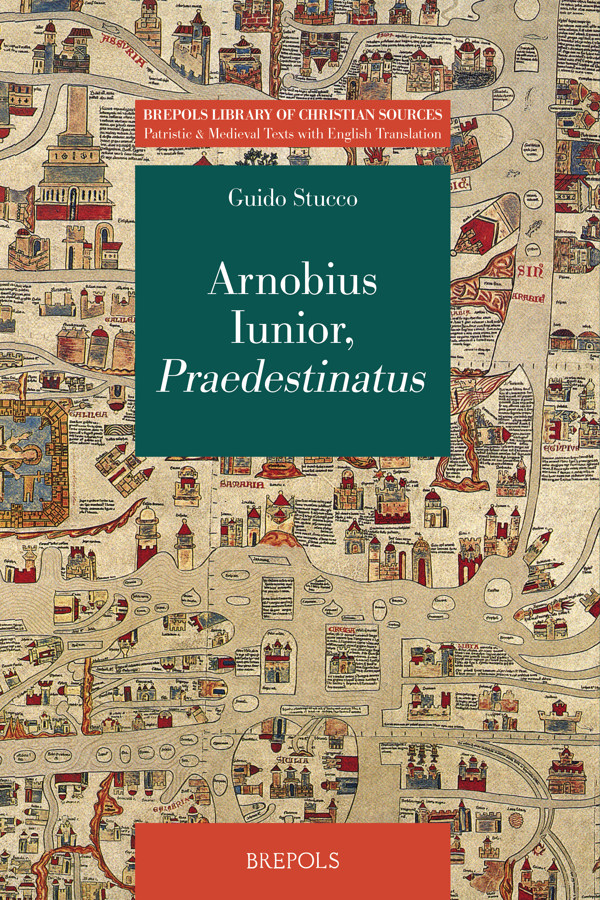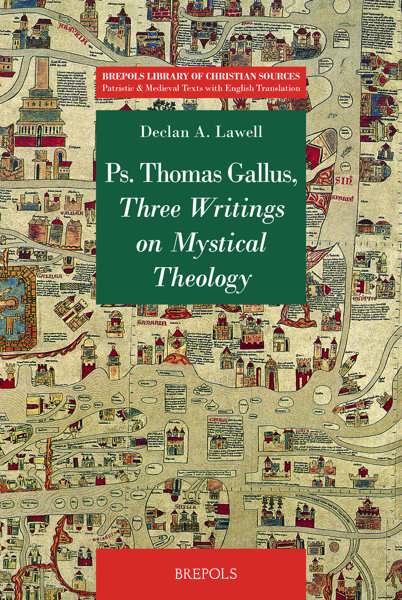
- Pages: 256 p.
- Size:156 x 234 mm
- Language(s):English, Latin
- Publication Year:2022
- € 50,00 EXCL. VAT RETAIL PRICE
- ISBN: 978-2-503-59676-1
- Paperback
- Available
- € 50,00 EXCL. VAT RETAIL PRICE
- ISBN: 978-2-503-59677-8
- E-book
- Available
"Despite the criticisms made here, this volume makes a valuable tool for theologians and historians of late antique Christianity who have neither the time nor expertise to engage the original Latin text." (Raúl Villegas Marin, in Revue d’histoire ecclésiastique 119/3-4, July-December 2024, p. 732-736)
"This treatise deserves increased attention from contemporary scholars and, in this perspective, Stucco’s translation is a welcome contribution and an essential research tool." (Giulio Malavasi, in BMCR 2023.06.16)
"Stucco's translation is lucid, clear, and flows nicely, sometimes including colloquial expressions (...) Arnobius Iunior, Praedestinatus will be a valuable read for those interested in heresiology, predestination and the theology of grace, patristic biblical interpretation, and texts from the fifth-century controversy over Augustine's views." (Francis X. Gumerlock, in Augustiniana 72/2, 2022, p. 461-466)
No debate has so characterised western Christianity than that which emerged in the milieu of Augustine of Hippo about how grace (gratia) relates to the life of the Christian. It was a bitter debate from the start with Pelagius as the archetypal theological villain, and it drew in virtually every writer in the succeeding generation: Julian of Eclanum, John Cassian, Prosper of Aquitaine - theologians had to take sides! And the controversy has re-kindled with tiresome regularity ever since. In the Praedestinatus, attributed by scholars to Arnobius, we enter that debate directly and see not only the issues but the vehemence of the contenders. The Praedestinatus presents one way of challenging the position of Augustine while not seeking a direct confrontation: it can be read as an example of corrective theological diplomacy. It is a particularly important text not only for the early period but because its later use - for instance at the time of the Jansenist controversies - provides us with a valuable window into the nature of Latin theological argument. This is the first translation of this text into English.
Professor Thomas O'Loughlin, STT Series Director
Guido Stucco earned a Ph.D. in Historical Theology from Saint Louis University. He has written five books in which he outlined the Catholic doctrine of predestination from the fifth to the seventeenth centuries.
For the first time in English, the Praedestinatus represents a moment in the fifteen-century old theological conversation in Latin Christianity about the topics of grace, predestination and free will. Written as a response to Augustine’s growing theological influence, this book should not merely be regarded as a work of apologetics, despite the author’s intention, but seen as breaking controversial new ground because of his claim that a small circle of heretics was acting as a ‘fifth column’ within the Church, undermining orthodox beliefs concerning God, his providence and all-inclusive love. The introduction sheds light on the authorship, dating and historical context of this work. It documents how this text was received and critically assessed for a period of over twelve centuries: from the time of Augustine in the fifth century to that of the bitter Jansenist controversy in the seventeenth. It entered those latter debates shortly after its rediscovery by Jacques Sirmond in the library of the Reims cathedral in a manuscript that, in the ninth century, was in the possession of Hincmar – the archbishop of Reims who in his time had revived disputes about grace and free will. Sirmond named the text ‘[the] Praedestinatus’ when he published its first edition in 1643.
After a three hundred year hiatus, interest in the Praedestinatus revived in the twentieth century thanks to German and French scholars who studied the book’s theological trajectory and claims. Its critical edition was eventually accomplished in 2000 by Italian scholar Franco Gori. The present translation is based on Gori’s edition.




